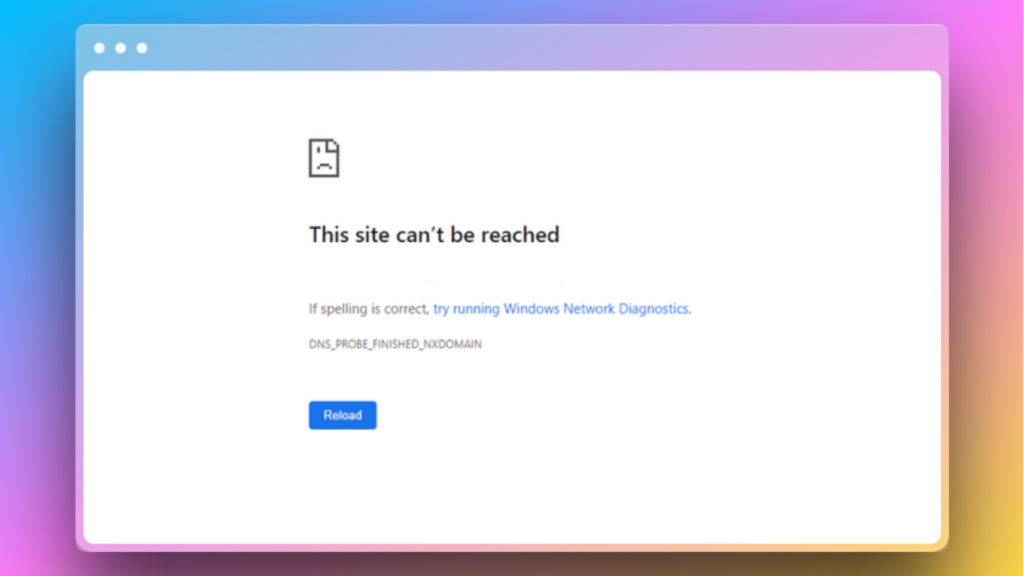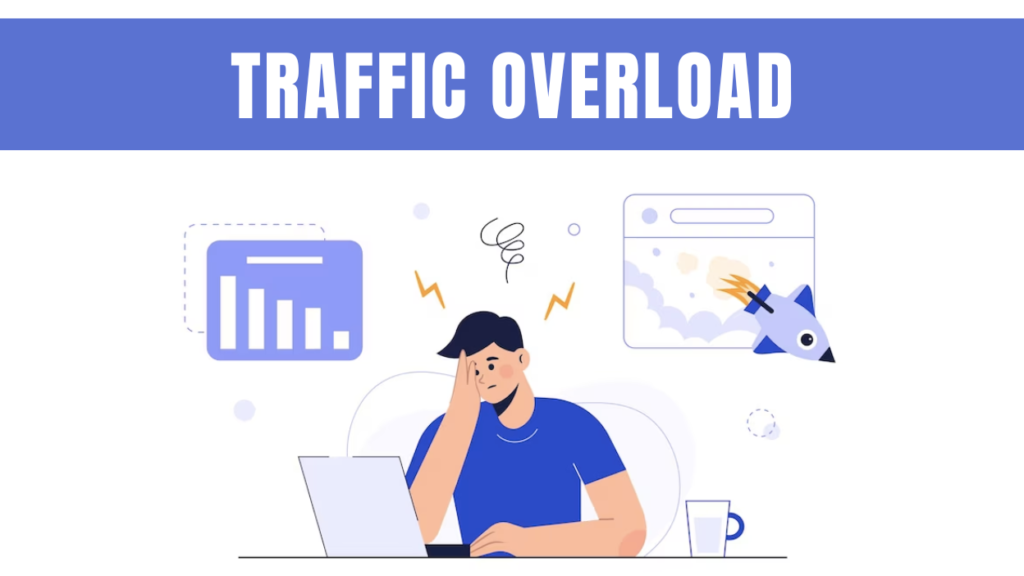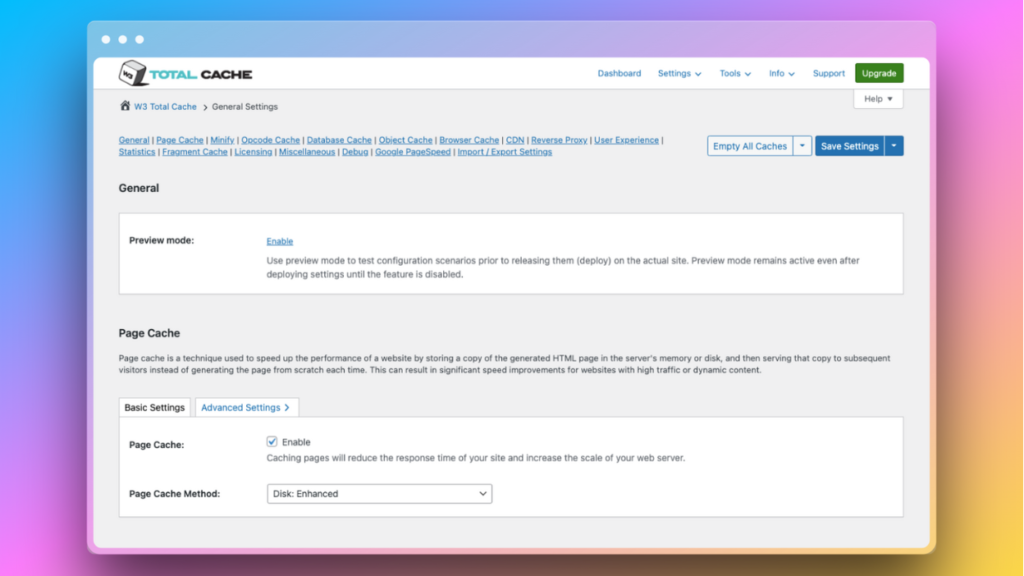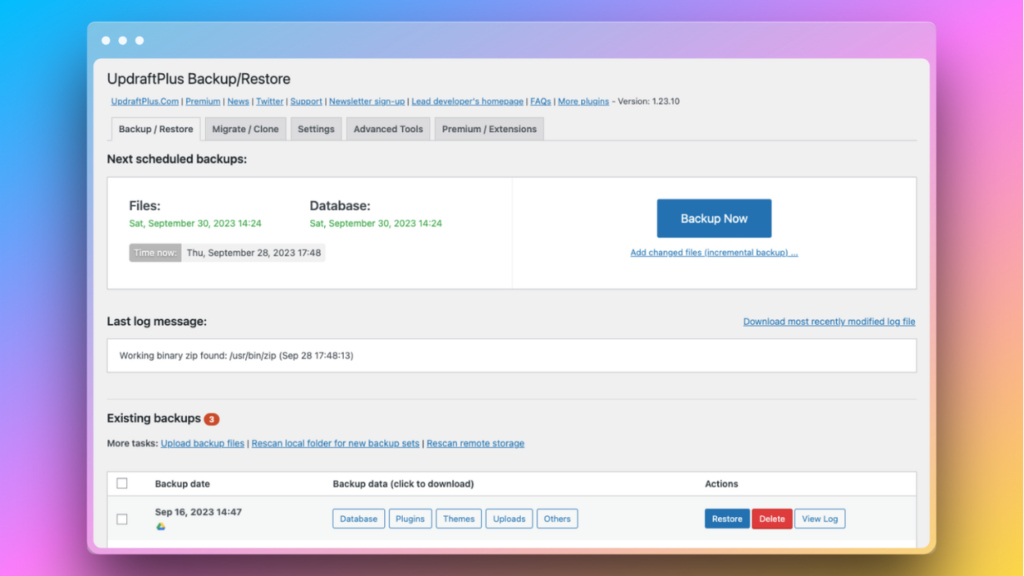5 Reasons Why Website Crash and How to Prevent it in 2023?
Published By: Rishabh Dhiman Published On: 3 Oct 23 6 Min Read
Did you know that website crashes can cost businesses approximately $5,600 per minute on average? This staggering figure highlights the negative effects of a website crash on both revenue and user experience. While planning a website may seem simple at first glance, it actually involves navigating a complex maze of codes, servers, and user behavior.
At Believ-In Technologies, we have a deep understanding of website development. Our dedicated team excels in creating digital experiences that are built to last. However, today our focus is not on promoting our services. Instead, we want to emphasize the significance of protecting your website from website crash.
In this blog, we will explore what is a website crash, five main reasons why website crash and provide you with strategies on how to prevent website crash from traffic and other issues.
Table of contents
- What Is a Website Crash?
-
Why Websites Crash?
- Traffic Overload
- Server Issues
- Broken Code
- Malicious Attacks
- Update Issues
-
How to Avoid Website Crash?
- Content Delivery Network (CDN) Optimization
- Database Optimization
- Content Caching Strategies
- Security Measures
- Content Delivery Control
- Scheduled Backups and Disaster Recovery Plans
- Regularly Update Software
- Conclusion
What Is a Website Crash?

A website crash is when data doesn’t load properly across the entire site, resulting in a blank screen or an error message featuring codes like the 404 error. This frustrating situation can result in slow loading times, error messages, or even a complete shutdown of the website.
Understanding what is a website crash is essential, as it can happen for various reasons such as high levels of user traffic overwhelming server capacities, coding issues, security vulnerabilities, or inadequate hosting resources.
Regardless of the cause, website crashing can be a significant headache, affecting user experiences and potentially damaging a brand’s reputation and revenue streams.
Why Websites Crash?
In today’s fast-paced digital landscape, the website performance can be the difference between success and failure. For webmasters and businesses, the thought of a website crash is a nightmare that keeps them awake at night.
Let’s now delve into the primary causes behind why website crash.
1) Traffic Overload

A major reason why website crash due to high traffic is the sudden influx of visitors. While more traffic is usually positive, it can become a problem if your website’s server infrastructure isn’t equipped to handle the increased load.
Similarly, when too many users try to access a website at once, it strains the server’s resources, resulting in slow performance or even complete website crashes.
To address this issue, website owners must invest in reliable hosting solutions. The hosting solution must be able to adapt to accommodate surges in traffic.
2) Server Issues
The functioning of every website relies on a server that stores all its data as well as files. Server issues can arise due to hardware failures or incorrect settings, making your website crashed. Such problems with the server can disrupt the seamless delivery of web pages to users’ browsers.
To reduce the risk of server-related website crashes, it is crucial to carry out regular website maintenance, monitor server performance, and implement redundant server setups.
3) Broken Code
A website’s functionality is heavily dependent on complex coding, where even a minor error can potentially trigger disastrous website crashes. When the code is broken, conflicts may arise and cause performance problems that could ultimately result in a complete site outage.
Therefore, it is of utmost importance to rigorously conduct code audits, testing, and debugging procedures to guarantee a clean and error-free codebase for the website.
4) Malicious Attacks

The internet is full of cybersecurity threats that can pose a serious risk to websites, including website crashes. Malicious hackers employ tactics like DDoS attacks, which flood a website with traffic, overwhelming its servers and causing it to go offline.
Furthermore, security breaches can result in unauthorized access and defacement of a website, further damaging its reputation. To mitigate these risks, it’s crucial to safeguard your website with strong security measures, firewalls, and regular updates.
5) Update Issues
Keeping a website secure and functional requires regular updates, but they can sometimes cause problems. Compatibility issues between existing components as well as new updates can result in a website crash.
To avoid this, it’s important to conduct thorough compatibility testing before implementing updates and have a backup and rollback plan in case any issues arise during the update process.
How to Avoid Website Crash?
Experiencing a website crash can be extremely detrimental for any online business or organization. It not only disrupts the user experience but also results in substantial revenue losses and harm to your brand’s reputation.
Fortunately, by implementing the right strategies, you can proactively prevent a website crash due to high traffic and guarantee that your site remains reliable even during periods of increased visitor influx.
Let’s talk about seven vital strategies on how to prevent website from crashing.
1) Content Delivery Network (CDN) Optimization

A Content Delivery Network (CDN) is a network of servers spread across different locations around the world. It functions by storing cached copies of your website’s content on these servers, which helps lessen the load on your hosting server and enhances the loading times of your pages.
By utilizing a CDN, you can efficiently distribute your website’s content to users globally and prevent website crashing. Make sure to select a CDN provider that provides strong optimization choices and integrates well with your website for smooth content delivery.
2) Database Optimization
Having a database that is not properly optimized can have negative effects on your website. It can slow down the performance and increase the risk of website crashes, especially when there is high traffic.
To avoid these issues, it’s important to regularly optimize your database. This includes removing unnecessary data, indexing tables, as well as optimizing queries. These optimizations not only improve your site’s performance but also ensure smoother operations during periods of increased traffic, preventing potential website crashes.
Another consideration is implementing a database caching mechanism, which further improves response times and reduces strain on your server, making your website more resilient overall.
3) Content Caching Strategies

Caching is the process of storing static copies of your website’s pages, images, as well as assets. When a user visits your site, instead of generating the content from scratch, the cached version is delivered, thereby reducing server load.
To ensure smooth performance during traffic spikes, it’s important to implement effective caching strategies such as server-level caching and utilizing popular Content Management Systems (CMS) caching plugins like WordPress. These strategies help deliver content swiftly and minimize the risk of website crashes.
4) Security Measures
To prevent website crashes caused by malicious attacks, prioritizing security measures is crucial. Invest in strong security systems like firewalls, intrusion detection systems, and conduct regular website security audits.
Utilize a Web Application Firewall (WAF) to filter out harmful traffic and safeguard your website from DDoS attacks.
Moreover, ensure the timely updating of your CMS and plugins to promptly address any potential security vulnerabilities and maintain a secure and stable online presence.
5) Content Delivery Control
To avoid a website crash due to high traffic, it is crucial to have precise control over content delivery. By implementing effective traffic management solutions, you can efficiently distribute incoming requests.
Techniques such as round-robin or weighted distribution in load balancing help ensure that no single server becomes overwhelmed during periods of increased traffic.
Additionally, consider utilizing a WAF to prioritize legitimate traffic and block malicious requests, thus maintaining the responsiveness of your website.
6) Scheduled Backups and Disaster Recovery Plans

While website crashes may be inevitable, it is essential to have a reliable backup and disaster recovery plan in place.
Make sure to schedule regular backups of your website and its database, keeping these copies stored securely. Storing them offsite or in the cloud is ideal.
In the event of a website crash, you can swiftly restore your site to a previous state, minimizing downtime and ensuring uninterrupted operation for your business.
7) Regularly Update Software
It is crucial to regularly update your software, such as your content management system (CMS), plugins, and server software. These updates often include security patches and enhancements for performance.
Neglecting to update puts your website at risk of security breaches and increases the chances of a website crash.
Make sure to regularly monitor and apply updates, but also test them in a staging environment to ensure they are compatible with the existing components of your site.
Conclusion
Navigating the complexities of the digital world can be overwhelming, especially when it comes to ensuring a smooth and uninterrupted online presence.
That’s where Believ-In Technologies steps in. No longer will you need to worry about the frustrations of creating a website on your own. Our website development services are dedicated to building sturdy and reliable websites that can withstand any challenges that come their way.
For website owners, it’s crucial to understand what causes a website to crash and take proactive measures to prevent them. By optimizing content delivery, databases, and security protocols, and staying diligent with regular updates, you can greatly minimize the risk of a crash.
